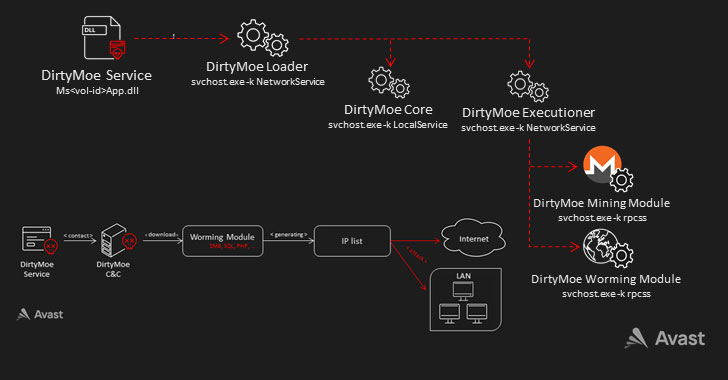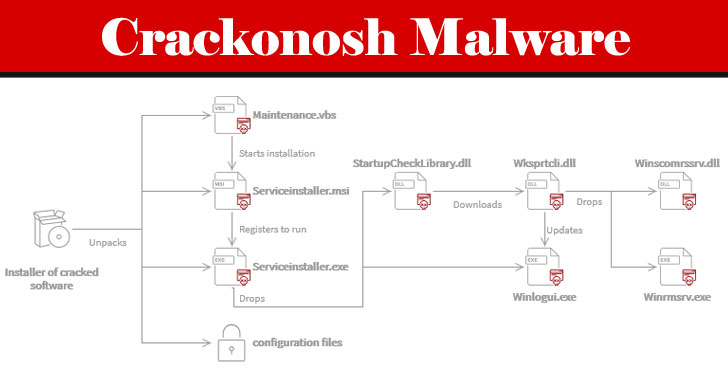Dubbed Cryptocurrency mining malware PyRoMine using ETERNALBLUE exploit to hack vulnerable windows based computer to mine Monero cryptocurrency.
ETERNALBLUE is a Remote Code Execution (RCE) exploit that used by shadow brokers who was tied with NSA to abuse the SMBv1 file sharing protocol.
Many of the organization has been used SMB Protocol on the internet during this attack that leveraged those exploits which resulting historical WannaCry and NotPetya ransomware attacks.
PyRoMine Malware written in Python and it comes into stand-alone executables so that it cannot require Python on the targeted computer in order to execute the Python program.
This Malware started in April 2018 and cybercriminals are continuously improving the strength of the malware and this malware had already been paid approximately 2.4 Monero.
Also, PyRoMine Malware equipped to evade the security software and it enables the RDP services in victims machine to open for future attacks.
How Does PyRoMine Malware Mine Monero
Initially, PyRoMine Malware injected into victims computer via malicious URL ( hxxp://212.83.190.122/server/controller.zip) that dropped as a Zip file in the vicitms computer.
Inside of the Zip files contains the python installer that comes with stand-alone executable, once extract the main file, it contains a payload called “controller”
Further Analysis revealed that the Controller file code has been copied from the ETERNALROMANCE exploit.
Later this malware finds the local IP address to find the subnets of the local network to execute the payload.
According to Fortinet Analysis, While ETERNALROMANCE requires authentication, but even for a Guest account the exploit gives the attacker SYSTEM privileges. In the samples analyzed the exploit function is called with an “internal” type parameter.
This Malware login to the target machine using the hardcoded username “Default” and the password “[email protected]” to execute the payload and also make it as a default credential for re-infection and future attacks.











